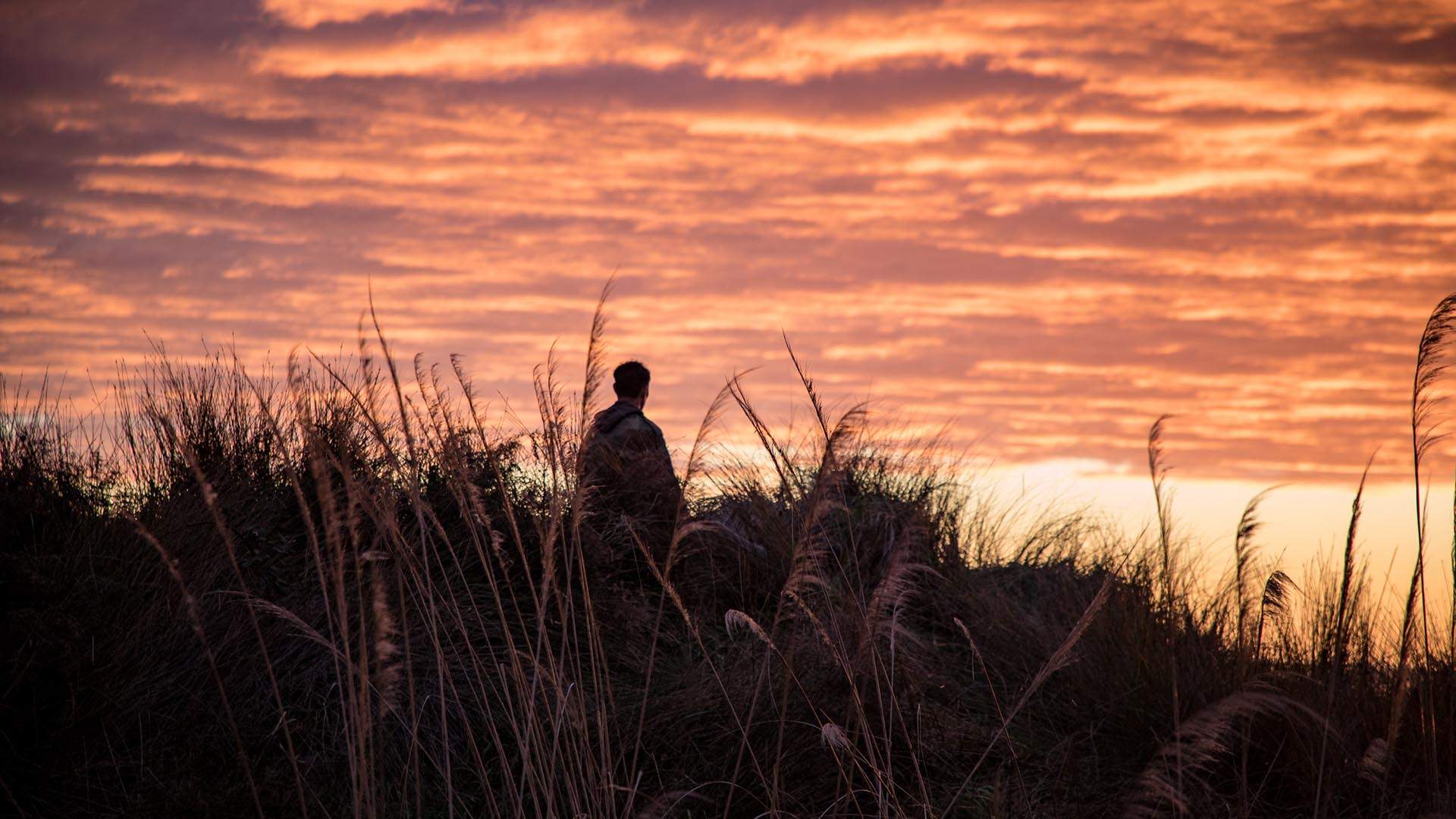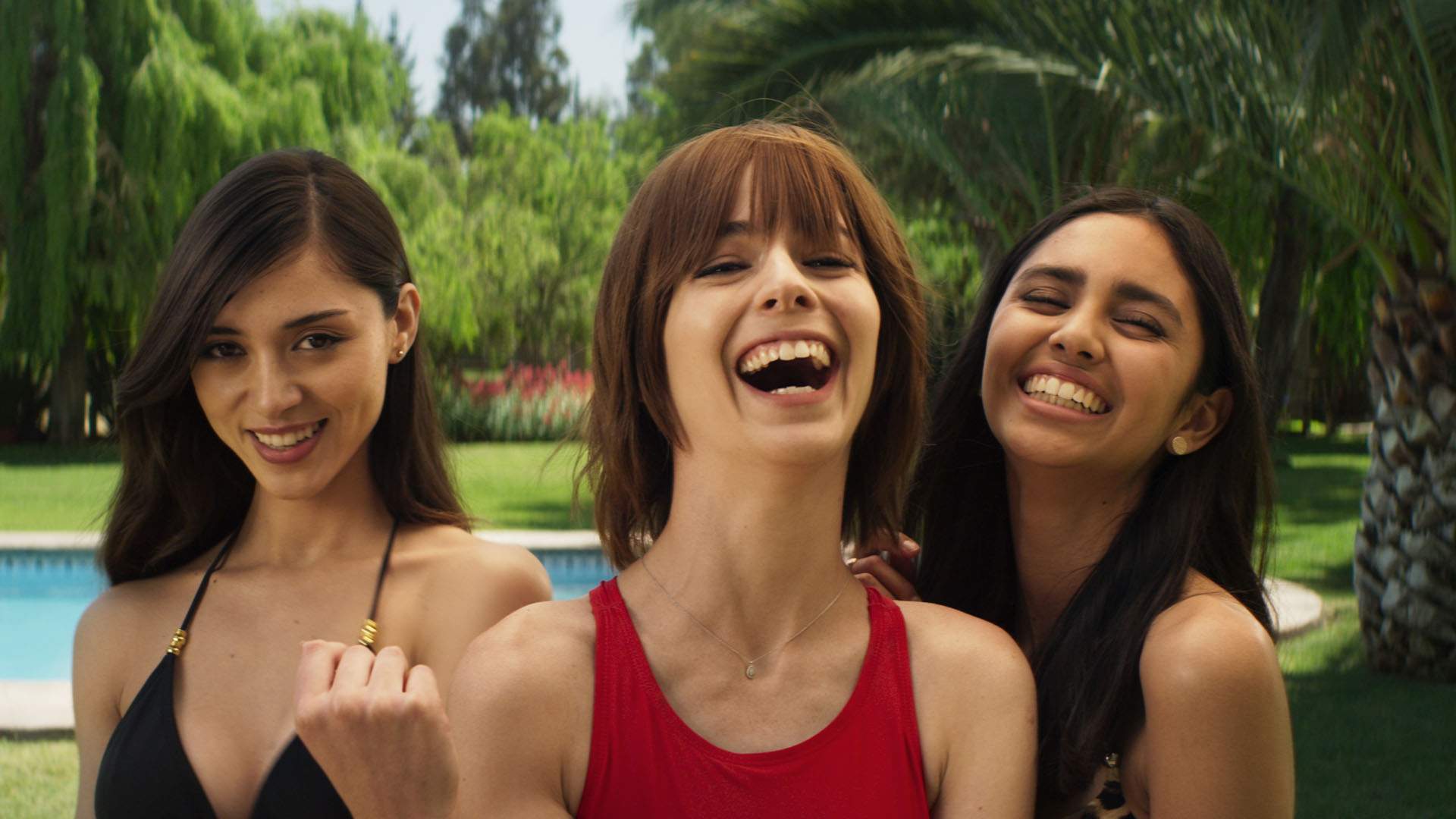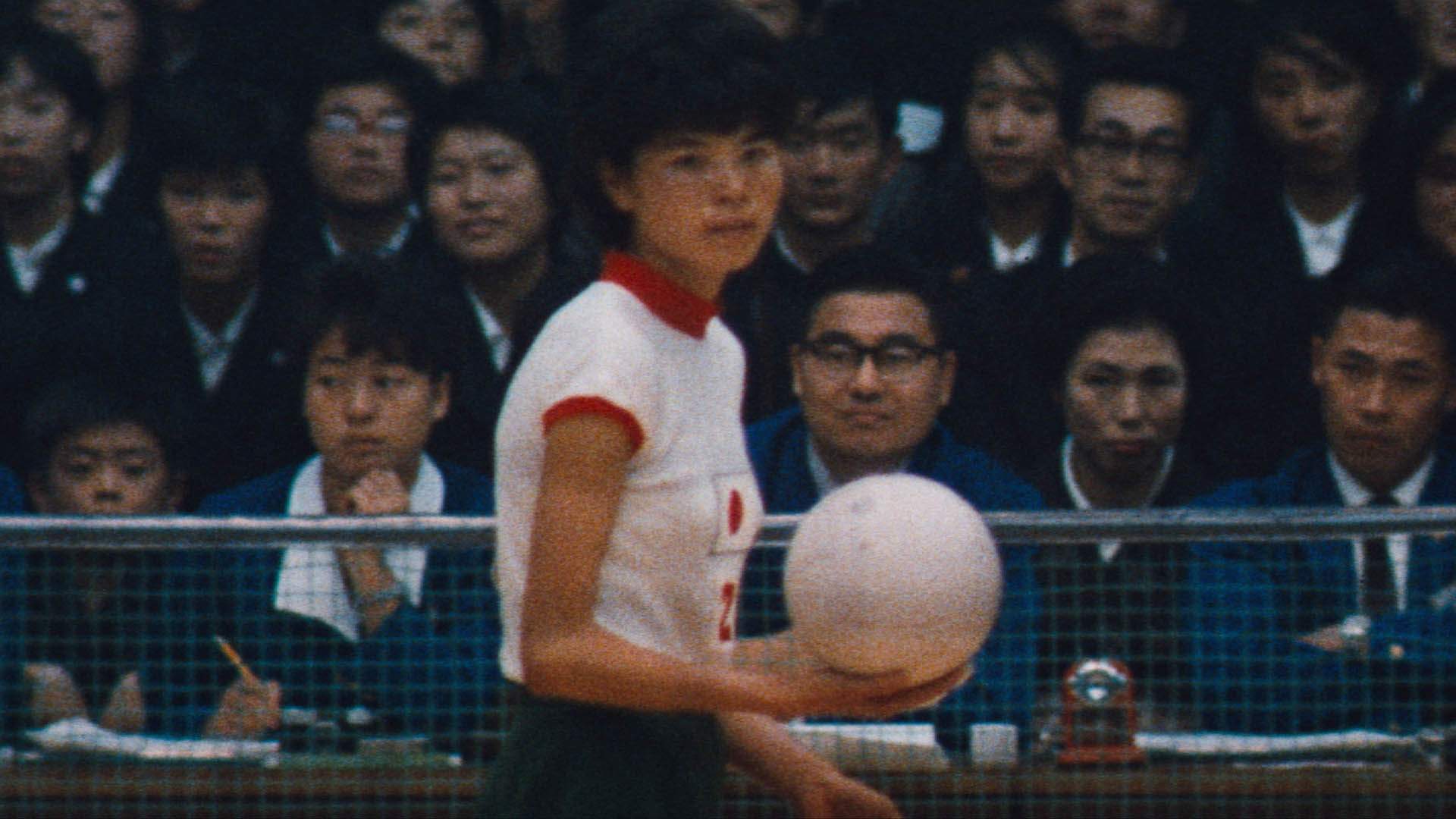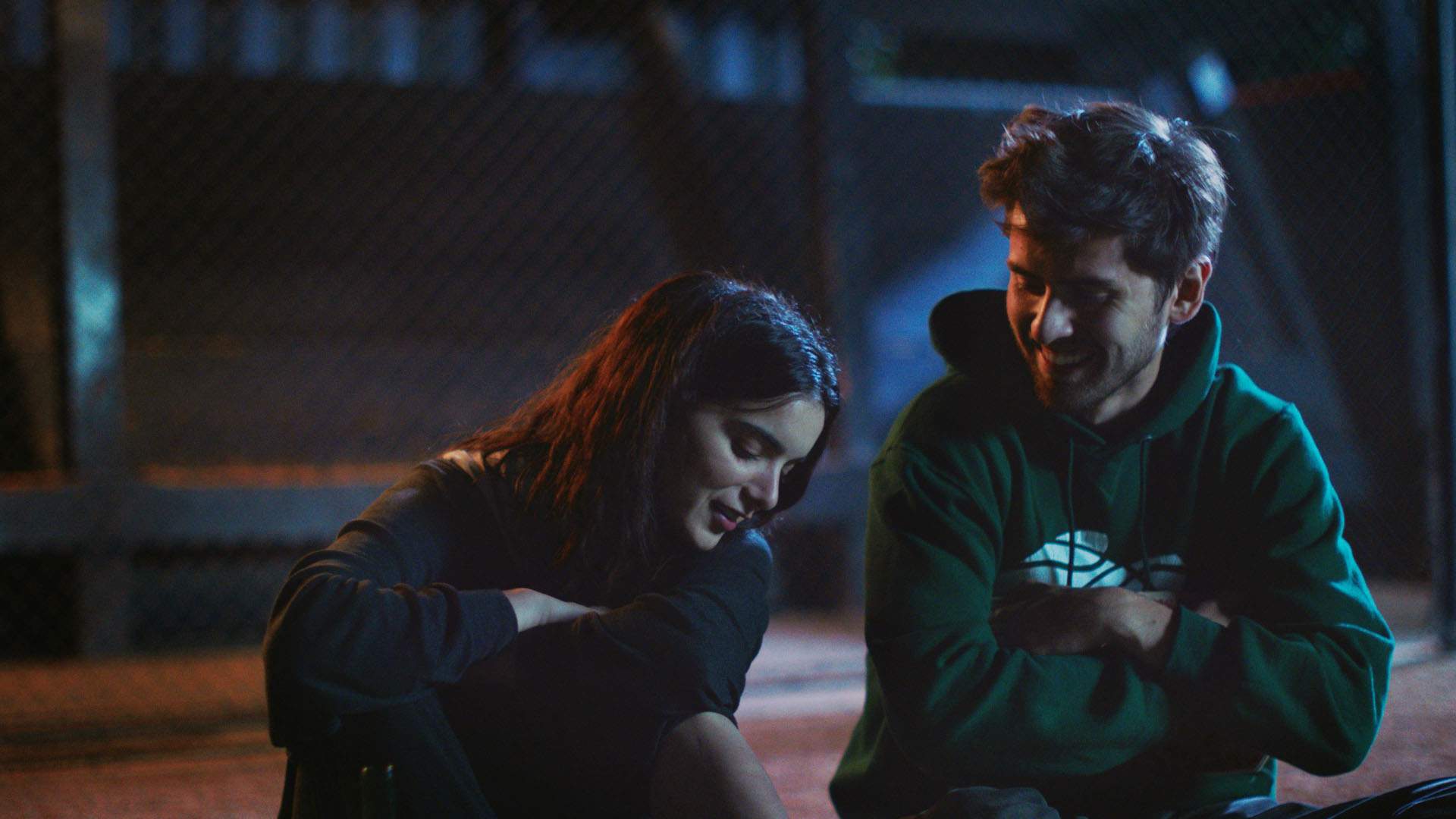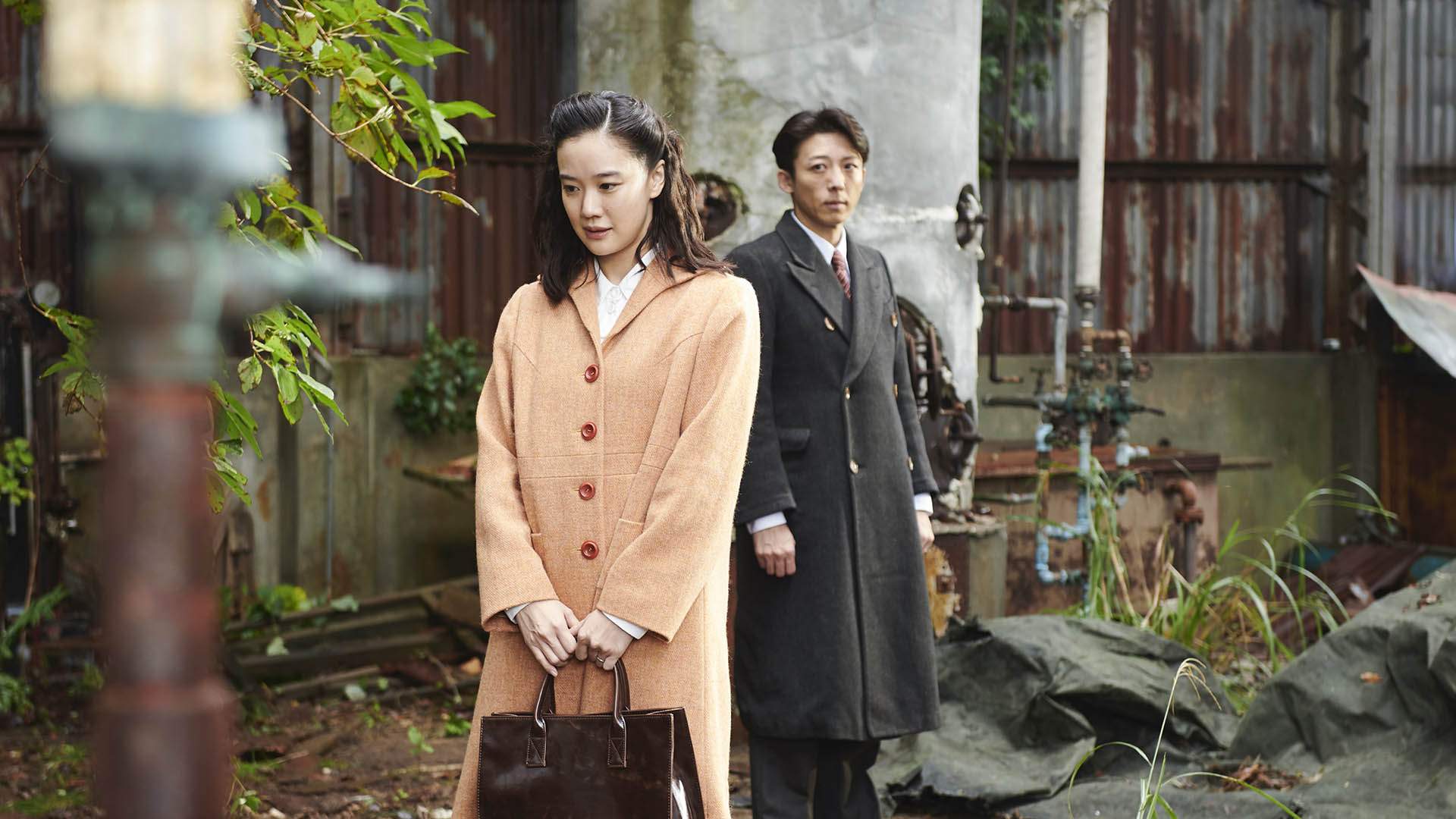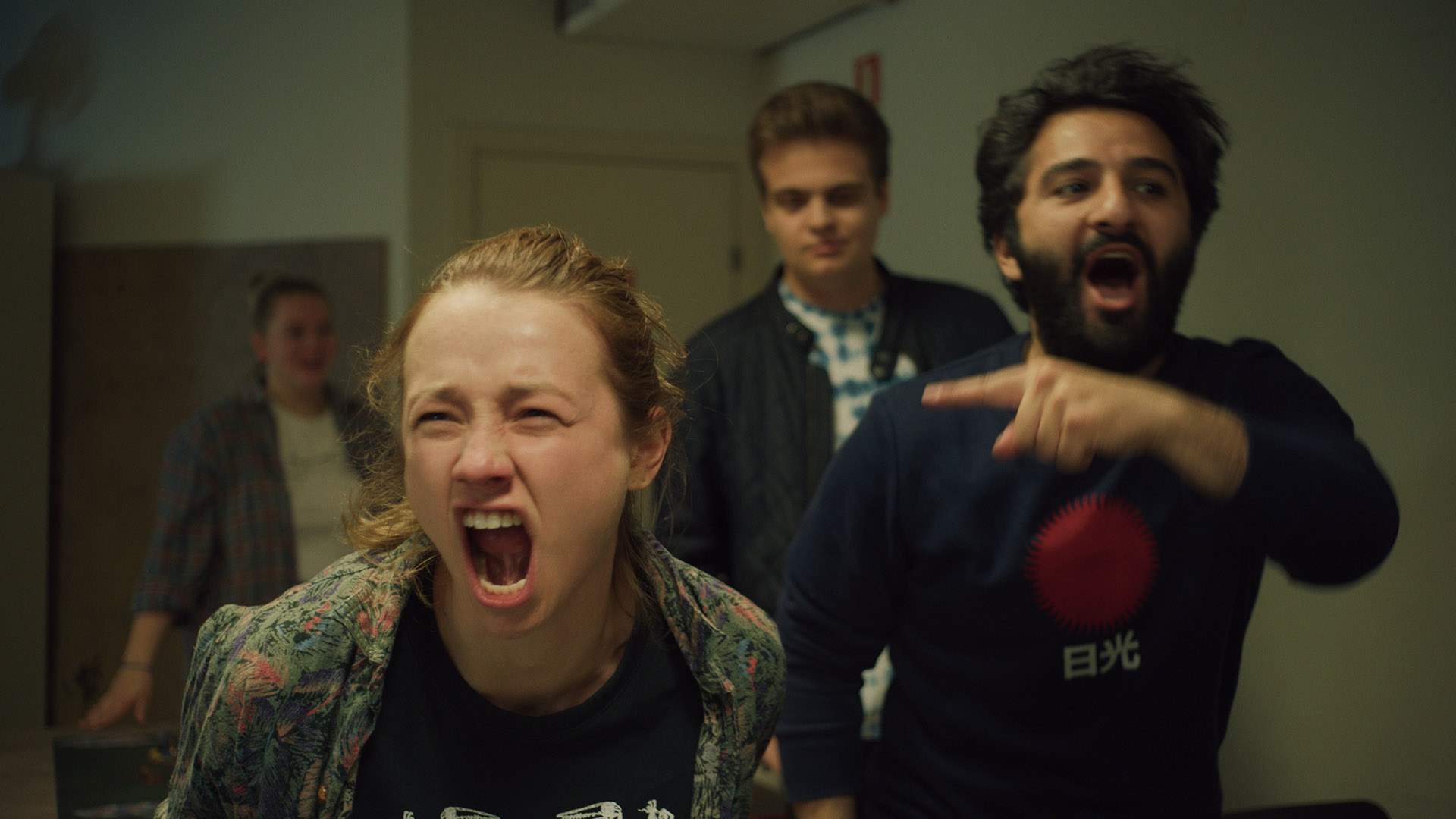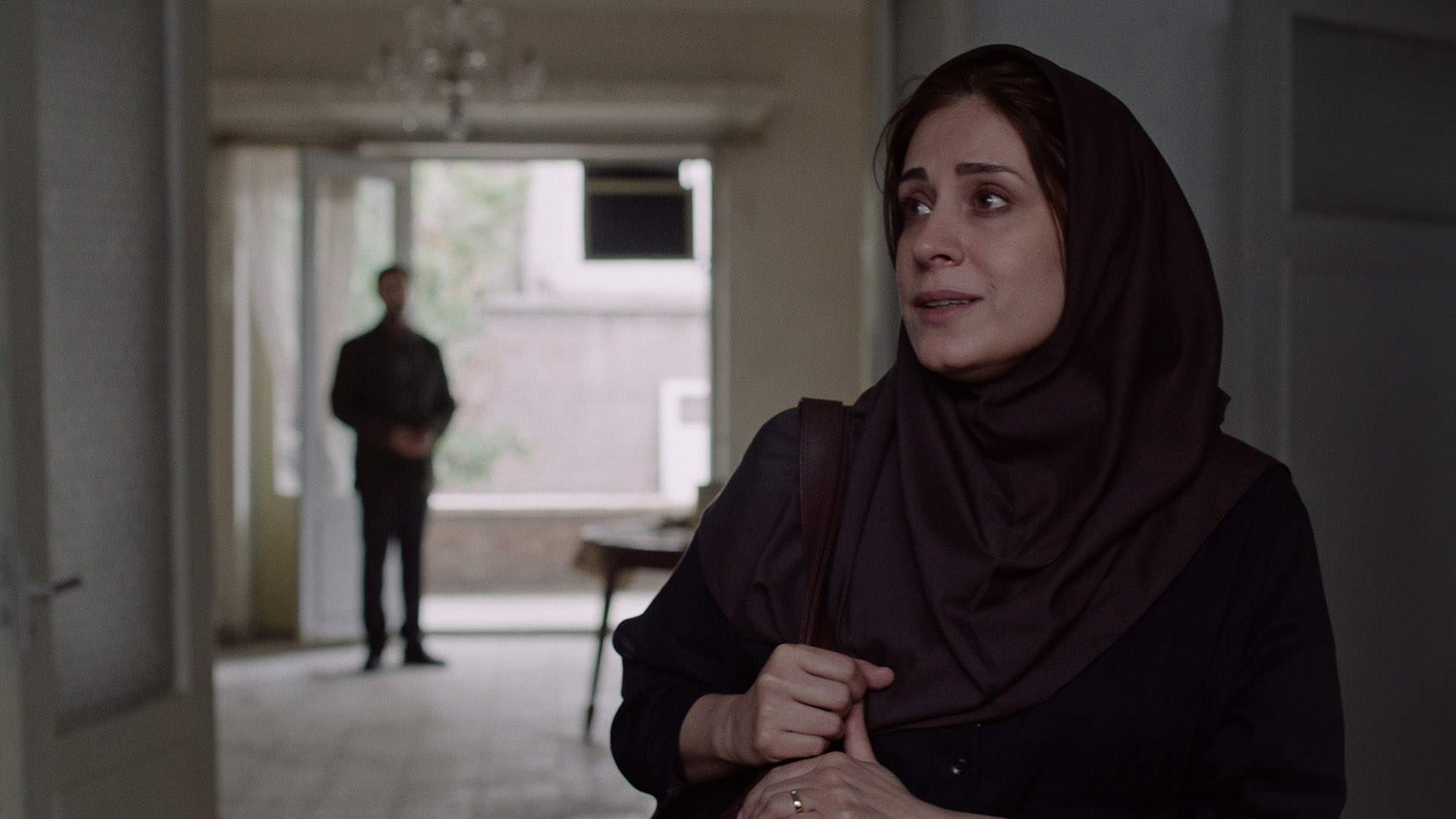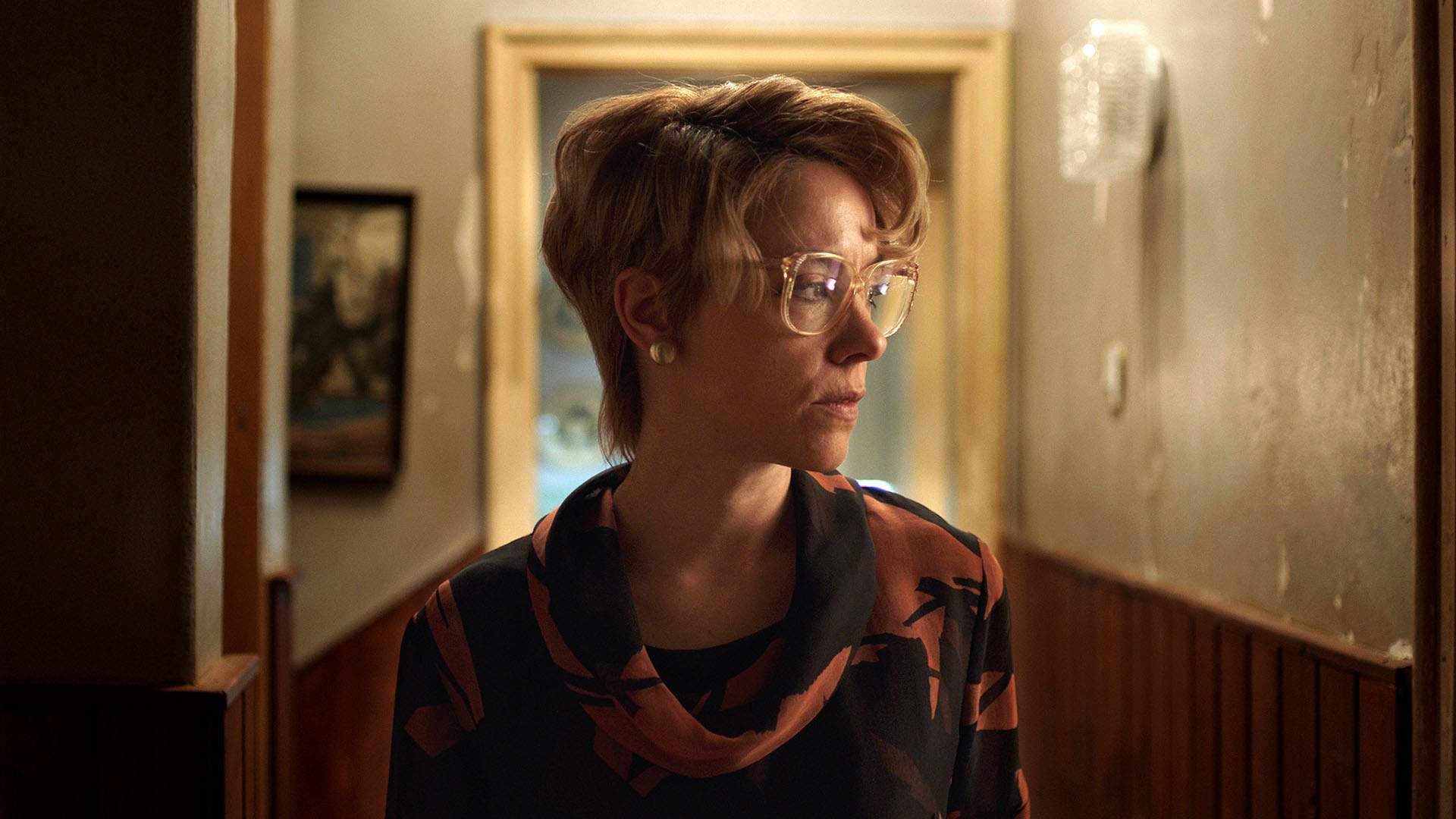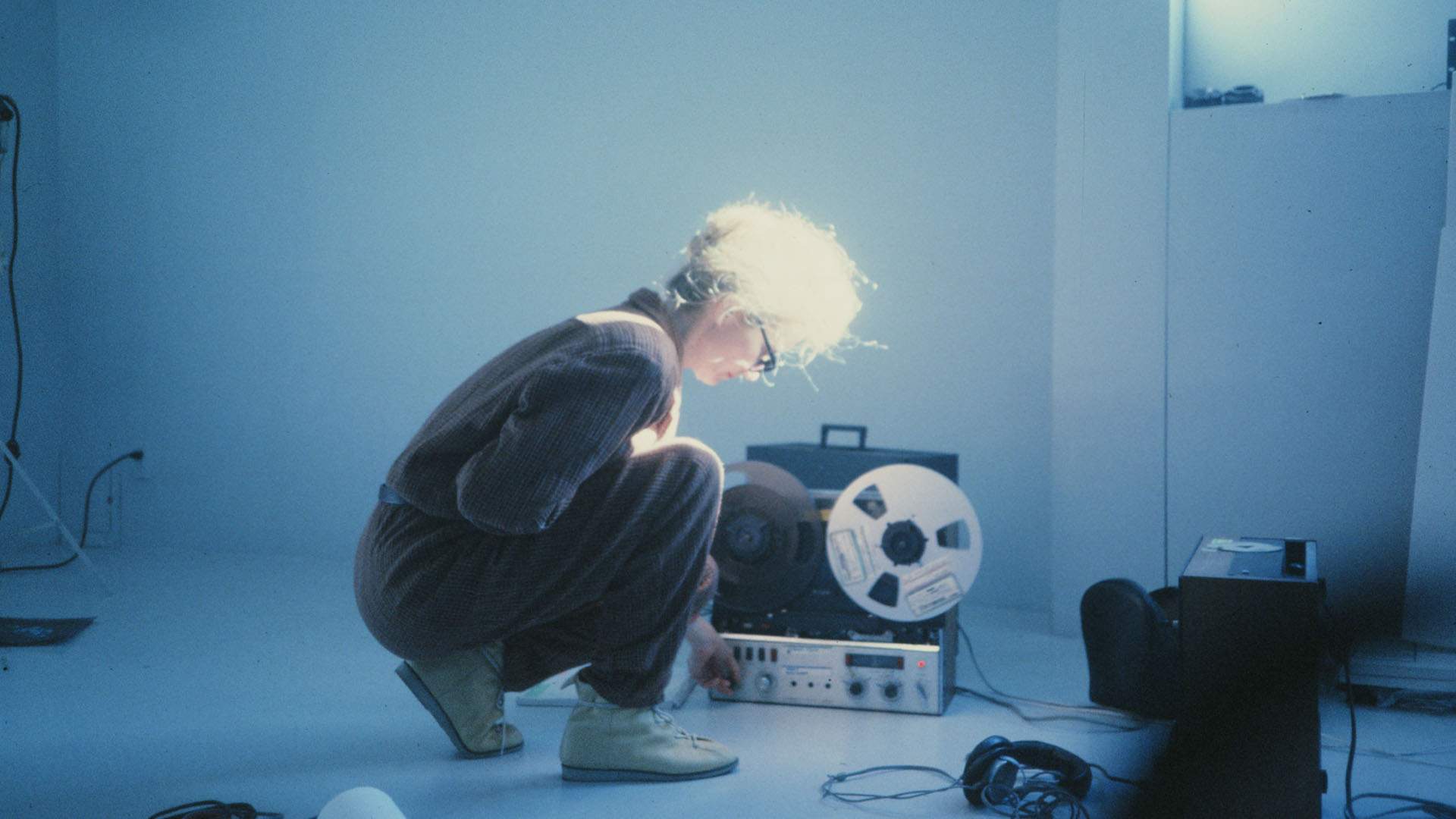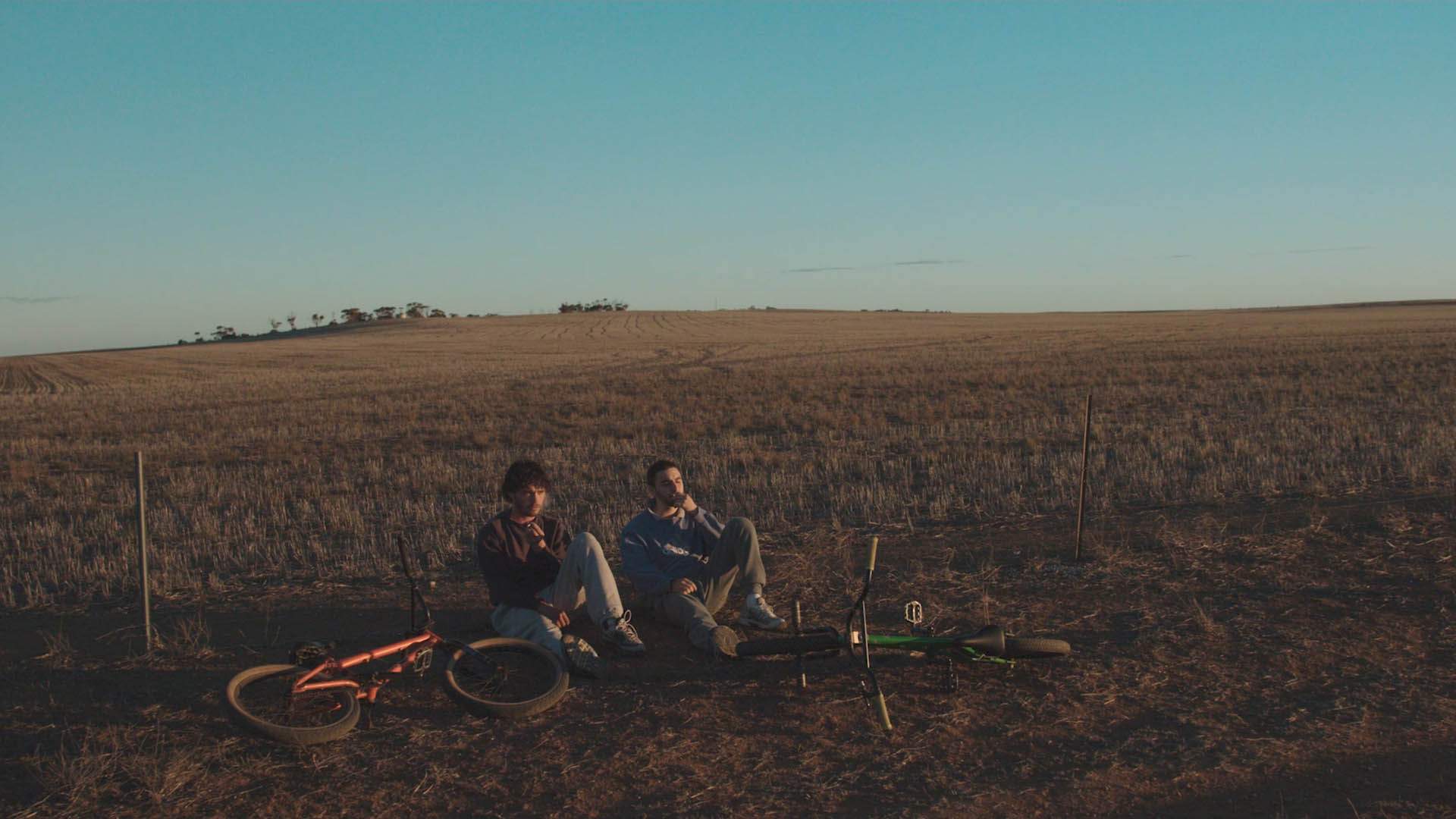Ten Must-See Movies to Stream During Melbourne International Film Festival's 2021 Online Program
Check out a chilling New Zealand-set thriller, a savage Chilean drama about influencers and an essential documentary about pioneering women in electronic music.
In a perfect world, cinephiles from all around Australia would currently be converging upon Melbourne to attend the city's always jam-packed annual film festival. Going to MIFF is an experience. In its pre-pandemic form, the festival ran for 18 days every year, screened hundreds of movies, and had film buffs constantly hopping between the Forum, ACMI, Hoyts Central and whichever other venues happened to be in use at any given fest. It's an ordeal. It's glorious. It a movie-lover's dream. It's a way of life. It also now feels like a treasure from a completely different time.
The Melbourne International Film Festival is still on the agenda for 2021, thankfully. It's quite a bit different to MIFFs gone by, though, and — at least according to current plans at the time of writing — to the fest's online-only version last year. Ideally, there'll still be an in-cinema experience after Melbourne's latest lockdown ends on Thursday, August 12; however, from Thursday, August 5, the fest is also playing more than 90 titles digitally (and nationally) via its new online platform MIFF Play.
Accordingly, whether you're a locked-down Melbourne resident who's gearing up for the usual MIFF fun in a week's time, or you're a movie fan also in lockdown in Sydney or Brisbane, a heap of films from around the world are now available to stream. Some have done the rounds of prestigious international fests, and arrive with a reputation. Others you mightn't have heard of yet, and you definitely won't find streaming anywhere else. That's this year's MIFF, digital-style, and we've watched and reviewed ten standouts from the online program that you should pop on your must-see list.

FRESHMAN YEAR
A college-set rom-com about stumbling forward — literally and emotionally — Freshman Year sounds rather familiar on paper. Alex (Cooper Raiff, Madeline & Cooper) has moved to Los Angeles for school, has struggled through six months so far and is still finding it hard to fit in, especially with his constantly drunk roommate Sam (Logan Miller, Escape Room: Tournament of Champions). When he isn't eating alone, he's video-chatting with his mum (Amy Landecker, Bombshell) and younger sister (Olivia Scott Welch, Fear Street) in Dallas, and wishing he was there himself. Then, after a party at a frat house called "shit house" — which was also the movie's original title when it won the Grand Jury Prize for best narrative feature at the 2020 SXSW Film Festival — Alex connects with Maggie (Dylan Gelula, Unbreakable Kimmy Schmidt) over a night spent drinking, walking, talking, burying a dead pet turtle, spilling secrets and more. Raiff, who writes and directs as well as stars, has clearly seen Before Sunrise, Before Sunset and Before Midnight, plus Dazed and Confused. He's seen all the flicks they've inspired over the past couple of decades, too. Thankfully, the talented young filmmaker and actor crafts a romance-meets-coming-of-age film that's both laden with Gen Z specifics and steeped in universal emotions, as aided by his dreamlike visual eye and stellar performances — yes, from Raiff himself, and also from the always-excellent Gelula.

LA VERÓNICA
When Mariana Di Girólamo starred in the astonishing Ema, filmmaker Pablo Larraín didn't want to look away from her fierce and unflinching performance, and rarely did. With La Verónica, fellow Chilean director Leonardo Medel (Harem) goes one better — because only once throughout the entire feature does he let someone other than his star linger in the centre of his frame. Di Girólamo plays the titular character here, too, and she's an influencer married to a famous soccer star (Ariel Mateluna, Amanda). Vero spends her life putting herself in the middle of every image, including the daily snaps she poses for her by her pool with her model pals. Yes, she's that determined to always be the centre of attention. Accordingly, Medel uses one big and bold stylistic flourish to constantly remind viewers about what's important to his protagonist, what she seeks and how she goes about it — and it's just one of the movie's pitch-perfect touches. Also outstanding: Di Girólamo, of course, with her portrayal effortlessly conveying Vero's carefully manufactured facade, the at-any-cost drive always lurking underneath, and the way that a life spent courting the spotlight can both hide and augment a person's struggles and flaws. The script bubbles with smarts and insights, too, as the eponymous figure finds it hard to balance motherhood, a secret from her past, her jealousy over her husband and the need to notch up two million Instagram followers to become the face of a lipstick brand.

BALLAD OF A WHITE COW
During its in-cinema program, MIFF will screen There Is No Evil, the exceptional 2020 Berlinale Golden Bear winner that ponders the costs and weight of the Iranian justice system — and its penchant for the death penalty specifically. Also on the bill: A Hero, the latest movie from acclaimed Iranian director Asghar Farhadi, who is known for Oscar-winning domestic drama A Separation and other such thorny fare about the reality of life in his homeland. Helmed by filmmakers Behtash Sanaeeha and Maryam Moghaddam (The Invincible Diplomacy of Mr Naderi), and starring the latter, Ballad of a White Cow slides in seamlessly alongside the fest's other Iranian titles. It too explores the impact of executions, and also the unfair disadvantage at which the Middle Eastern nation places its female citizens. It's also moving, insightful, compelling, potent and excellent all-round. In a determined, resilient, often-silently heartbreaking performance, Moghaddam plays Mina, a Tehran resident struggling with the stigma of being a widow after her husband was killed by the state for a crime that he's now been posthumously found innocent. That's a wrong she isn't just willing to stomach, even as simple things like finding somewhere to live and caring for her young daughter keep proving all the more difficult because she's seen as a single woman.

THE WITCHES OF THE ORIENT
Even if the tail end of the 2020 Tokyo Olympic Games didn't coincide with the beginning of MIFF, The Witches of the Orient would be must-see viewing. The story it covers is just that engaging, fascinating and important. Back in 1964, when the Japanese capital last hosted the event, the country's women's volleyball team were one of the games' sensations. They didn't just win gold, beating the USSR to claim glory — the team of former textile factory workers managed to nab that coveted medal as part of a 258-game winning streak that lasted from 1960–1966. Fresh from serving up another sports snapshot with John McEnroe: In the Realm of Perfection, director Julien Faraut assembles the remaining living members of the squad to tell their tale. Starting with an anime sequence about enchanted women, and peppering in a large array of other animated clips that were actually inspired by the team's success (yes, volleyball anima is a thing), this is no ordinary sports documentary. With circling camerawork, Faraut turns roundtable chats over bento boxes into eye-catching clips. He weaves in archival footage with mesmerising and rhythmic flair, cuts to the heart of his interviewees' recollections while also surveying Japan today, and sets his footage and discussions to the likes of Portishead and K-Raw. One training montage is nothing short of hypnotic, and the big game itself is a masterclass in tension.

COMING HOME IN THE DARK
Peering across New Zealand's gorgeous landscape as far as the camera can see, Coming Home in the Dark starts with a recognisable setup. Hoaggie (Eric Thomson, The Furnace), Jill (Miriama McDowell, Waru), and their teenage sons Maika and Jordan (debutants Billy and Frankie Paratene) have hit the road from Wellington for a scenic trip — stops at quaint service stations, family photos with striking backdrops and cosy little picnics all included. It's during the latter that two men suddenly and unexpectedly cross their paths, and it's apparent immediately that the gun-toting Mandrake (Daniel Gillies, Occupation: Rainfall) and his offsider Tubs (Matthias Luafutu, Ghost in the Shell) aren't there to make friends. Adapting Owen Marshall's short story, first-time feature director James Ashcroft doesn't waste a second in jumping from an idyllic getaway to holiday horrors. He basks in NZ's vast natural splendours, then shows how isolating it can be when things go awry, too. And, he doesn't flinch at splashing bloodshed across the screen as his central family soon find their slice of happiness shattered forever. As a thriller, Coming Home in the Dark is tense, nerve-wracking and unrelenting; however, as masterfully handled by Ashcroft and his co-screenwriter Eli Kent (The Seagull), it finds an even deeper pool of terror in pondering the abuse of children in government-run facilities, the scars it leaves and, here, the retribution it inspires. An exacting genre piece and a weighty musing on trauma all in one — and a feature that's constantly shifting — this riveting film isn't easily forgotten.

NINJABABY
When Rakel (Kristine Kujath Thorp, Betrayed) learns that she's pregnant, it isn't exciting news. It's a shock that the aspiring artist isn't thrilled about, especially given that it'll require a drastic change to her usual drinking- and partying-heavy lifestyle. That's also how New Zealand comedy Baby Done started, but Norwegian gem Ninjababy boasts a particularly raucous sense of humour, an animated foetus — the titular infant — that talks to and slings plenty of savage comments at its mum-to-be, a guy with the unfortunate but also amusing nickname of Dick Jesus (Arthur Berning, Neste Sommer), and a look and feel that makes plain its graphic novel origins. As savvily adapted from Inga Sætre's Fallteknikk, its protagonist is fiercely her own person as well. Rakel completely refuses to fit anyone's idea of how a young expectant mother should act, or a woman in general for that matter, and steadfastly defies every expectation thrust her way at all steps along her maternal journey. Thorp turns in a raw, rich, resonant and relatable leading performance, all in a memorable movie that also earns those terms with gusto. And director Yngvild Sve Flikke (Women in Oversized Men's Shirts) doesn't so much find the right balance between crude and affecting as embrace the fact that those extremes, and everything in-between, should always be a part of any cinematic bundle that examines motherhood.

SISTERS WITH TRANSISTORS
As her stellar 2015 documentary Heart of a Dog demonstrated, the great Laurie Anderson should really narrate everything. Clearly, director Lisa Rovner feels the same way. Making her feature-length doco debut with Sisters with Transistors, she enlists the visual artist to talk through a history that's essential but also barely known: the history of women in electronic music. This thorough and illuminating ode to the female pioneers that have helped make the field what it is — including when it didn't even exist, and was met with derision — explores and celebrates ladies like Clara Rockmore, who was handy with a Theremin; Delia Derbyshire, who helped create the distinctive theme tune for Doctor Who; and Suzanne Ciani, the first solo female composer of a Hollywood film score. Also earning attention: Daphne Oram, Laurie Spiegel, Eliane Radigue and Pauline Oliveros, all legends in the field — and with achievements that include creating a technique to draw electronic sound, making a famed piece of musical composition software, and pushing the arena forward in leaps and bounds. Anderson's voice and an unsurprisingly magnificent soundtrack are paired with must-know details about iconic women that each deserve several movies devoted to them. Of course, we shouldn't need films like this to fill in ignored and overlooked gaps, but this a glorious and informative tribute.

CELTS
Every 90s kid that ever wanted or attended a Teenage Mutant Ninja Turtles-themed birthday party has an instant entry point into Serbian drama Celts. Everyone who has ever made their way to a friendly or family get-together, navigated heated conversations about the state of the world and felt a sense of malaise seething through the room is similarly well-primed for this striking film. In Belgrade in 1993, Minja (first-timer Katarina Dimic) is looking forward to celebrating turning eight by donning a homemade green costume and being showered in attention. It's an event that requires significant preparations on her unhappy mother Marijana (Dubravka Kovjanic, Underneath), doting taxi-driver father Otac (Stefan Trifunovic, The Living Man) and ever-present grandmother Saveta's (Olga Odanovic, Radio Mileva) parts, though. But the child-friendly festivities are just a backdrop for debut director Milica Tomović — because, as she charts the events of a single day in this bustling household, she explores not only the dynamics festering among the kids and the discontent infecting the adults, but also the effect that the political turmoil seeping through Yugoslavia at the time has upon everyone gathered. As a result, Celts delivers a relatable portrait of domestic chaos and a fictionalised snapshot of a particular moment in time, and in an engaging and textured fashion.

WIFE OF A SPY
As he's demonstrated in movies as varied as Journey to the Shore, Daguerreotype and Before We Vanish, Japanese filmmaker Kiyoshi Kurosawa makes features with patience — and with a mood that hangs around like an unforgettable memory. He jumps into both marital dramas and period-set wartime espionage antics with Wife of a Spy, and therefore into new territory for him, but his precise approach and affecting tone remains very much intact here. In fact, he won the Best Director prize at the 2020 Venice Film Festival for this sumptuously handsome and emotionally complicated effort. As this film about a wealthy silk merchant and his wife in 1940s Japan unfurls, it's easy to see why. From the painterly imagery to the potent performances — and including the layered script, as co-written with Ryūsuke Hamaguchi (Asako I and II) and Tadashi Nohara (Happy Hour) — every element is brought to the screen with meticulous care and impact in Kurosawa's hands. When Yusaku (Takahashi Issey, Romance Doll) visits Manchuria, Satoko (Aoi Yu, They Say Nothing Stays the Same) thinks it's just an ordinary business trip. But then she's visited at home in Kobe by her childhood friend Taiji (Higashide Masahiro, Before We Vanish), who tells her that her husband's jaunt abroad mightn't have been as straightforward as it sounds. A woman has turned up dead, Taiji has his suspicions, government secrets are involved and, soon, everything surrounding Satoko and Yusaku is under several shadows.
DRY WINTER
For Australian directors, the country's distinctive landscape is the gift that keeps on giving. A sizeable portion of our national cinematic output puts its blazing ochre hues to great use, and its sprawling outback expanses as well (see: everything from Wake in Fright and Walkabout to Mystery Road, The Rover, The Dressmaker and High Ground). Dry Winter isn't one of those movies, however. It makes the most of its rural backdrop, of course, but by roving over it with the same probing and naturalistic eye that it affords its listless characters. As first-time filmmaker Kyle Davis follows twenty-something couple Jake (debutant Andrew Phillips) and Kelly (fellow first-timer Courtney Kelly) as they go about their ordinary lives on the Eyre Peninsula, he sees the shades of browns that remain evident in every patch of dirt around them. In their routine, he spies the many shades of grey that have infused everything from the odd jobs they work to get by to their nights spent finding mundane ways to pass the time, too. An observational feature that ticks by at a leisurely pace, Dry Winter hones in on detail. It sees the repetition, the minutiae, and the sights and sounds — and lets them build an immersive story. This is a sublime portrait of not knowing what the future holds that makes its audience feel like they're there in the frame with its yearning protagonists, even across its brief 62-minute running time.

The 2021 Melbourne International Film Festival runs from Thursday, August 5–Sunday, August 22 — screening online for the festival's entire duration via its streaming platform MIFF Play. Depending on the current lockdown, the festival is also aiming to play at a variety of venues around Melbourne from Thursday, August 12–Sunday, August 22. For further details, visit the MIFF website.
